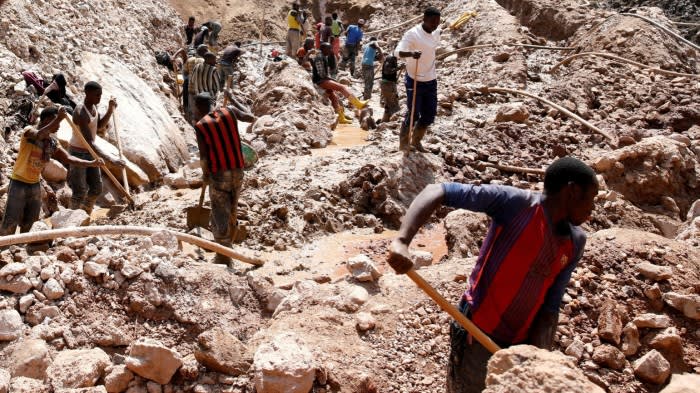Elon Musk has been tantalising investors with the prospect of an initial public offering of his satellite internet constellation, Starlink, but only “when revenue growth is smooth and predictable”.
The tweets by the maverick tech entrepreneur have some market punters excitedly calculating valuations in the tens of billions or more for Starlink, a service that is not yet complete and a business model that is far from proven.
But having launched 60 Starlink satellites last week with his rocket company SpaceX, Musk can boast that in 22 months his constellation has put almost as many small satellites into “low Earth orbit” as were launched globally in the decade to 2018.
And, yet, not everything is running as smoothly as Starlink’s prospective investors might hope.
Behind the scenes, a battle is raging that has pitched Musk against rival tech billionaire Jeff Bezos — as well as swaths of the satellite industry. Like Musk, these players are hoping to exploit LEO to deliver high-speed, low-latency internet access as the world becomes more connected.
The battle is ostensibly over whether Musk merely wants to “tweak” his existing operating licence or radically reshape his constellation by flying more satellites closer to the Earth. Here, they will be pulled into the planet’s atmosphere and vaporised at the end of their life instead of becoming space junk, argues Musk.
But in asking to relocate 2,800 more satellites from around orbits of 1200km above earth to 550 kms, Starlink is approaching Bezos’s own planned constellation at about 600 kms. Bezos and others such as ViaSat argue that Starlink’s presence at 550 kms could affect their own internet services, while also increasing the risks of collision and of space debris.
Musk’s rivals might just want to slow him down. Launched in May 2019, Starlink now has 1,320 satellites in orbit and is adding roughly 120 a month. Ultimately, Starlink aims to have some 12,000.
But in a few weeks, Musk will reach his licence limit of 1,584 satellites in the lower orbit. If the US Federal Communications Commission refuses a requested modification to the limit, Starlink will have to get in the queue behind rivals to apply for a new licence.
This is a debate that should attract wider attention from other spacefaring nations. The pace of Starlink’s expansion could make it more difficult to reach much-needed international agreement on standards that should be applied to a new wave of constellations.
A study by the University of Bologna found more than 90 companies or agencies planned constellations, most in LEO. After Starlink comes Amazon’s Project Kuiper with 3,200 satellites, Britain’s OneWeb with about 700 and Telesat of Canada with 298. The EU, too, is talking about its own constellation while China is planning multiple systems.
Low earth orbit, defined as between 150 kms and 2,000 kms altitude, is getting crowded. But there are still no international norms on acceptable satellite failure rates or how to protect the integrity of astronomical research from distortion caused by thousands of spacecraft.
Nor is there international accord on how to enforce best practice. And, most concerning, there are no international space laws on cleaning up the debris left behind by this new wave of spacecraft.
Individual nation states have tried to address these issues. But fragmented approaches encourage operators to go to the loosest regimes. The FCC proposed new rules more than a year ago but those have been delayed by corporate objections over cost. Neither companies nor nations appear ready to compromise on agreed standards.
In the US, there may be an incentive to see domestic giants such as Starlink and Amazon safely installed before holding conversations on new norms, say some. China and Russia will also want stake out their own space real estate.
Meanwhile, new entrants are lining up. Over the next decade, Euroconsult expects some 10,100 small satellites to be launched into LEO, more than five times that in the previous decade.
The problem is not yet acute as space is a big place. But, with every launch, the question of how to regulate space becomes more urgent.
For decades the world ignored calls for action on climate change. It would be tragic that just as nations begin to recognise the need to protect the Earth, they fail to collaborate on the preservation of space. Businesses such as Starlink intend to operate for many decades. If space is not sustainable, neither are their business models.
peggy.hollinger@ft.com















